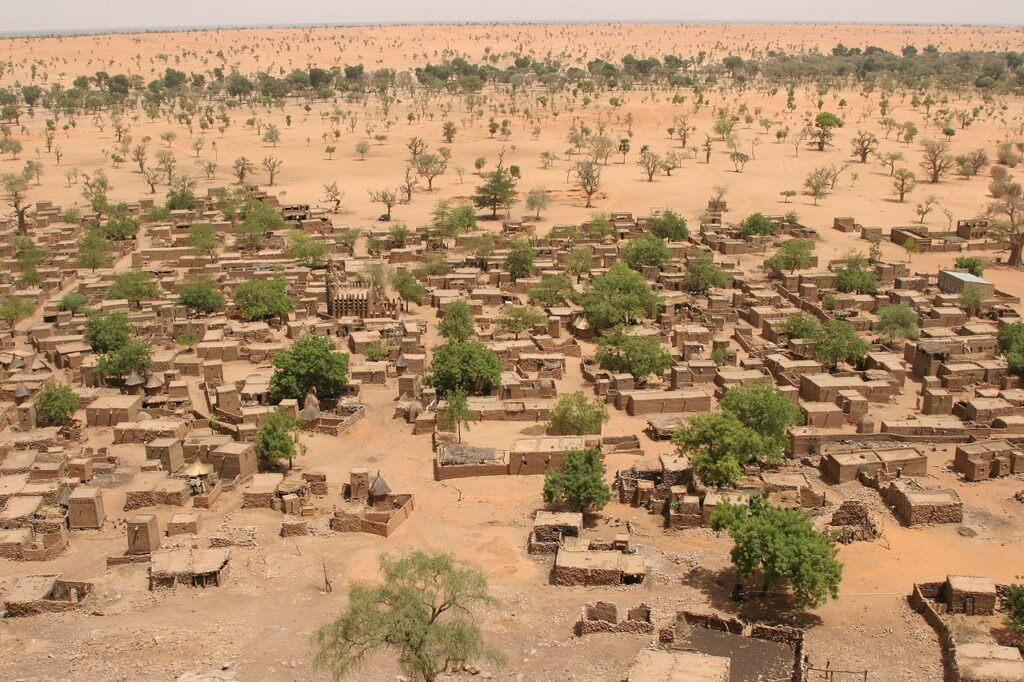“No continent will be struck as severely by the impacts of climate change as Africa.” United Nations Environment Programme, Regional Office Africa
“Africa will bear the brunt of global warming, which will be mainly caused by developed economies and some emerging ones; but Africa often has limited bargaining power in international negotiations.” Brookings Institute
Scientists are generally agreed that global warming will alter the world’s climate system. Temperatures will increase overall, there will be changes in rainfall patterns, and extreme weather events will become more common.
Although Africa is responsible for only around 4% of global greenhouse gas emissions, the continent is more vulnerable to climate change than other areas of the world.
(China contributes 23% of global greenhouse gas emissions, the US contributes 19%, and the European Union 13%. Russia and India each contribute 6%).
Put another way, it would take the average Ethiopian 240 years to register the same carbon footprint as the average American does in one year.
Climate change will disproportionately affect poor people in low-income communities due to their vulnerability and greater exposure to its adverse effects.
Food security
Agriculture accounts for 30% to 40% of GDP in African countries, and 80% of Africans rely on low-yielding, rain-fed agriculture. Global warming increases the risk of drought in southern and central Africa, and the risk of flooding in east Africa. Total crop production might decrease by as much as 10% by 2050.
This poses a threat to all four pillars of food security. Less food will be available, it will cost more, the quality will be poorer, and the food system will become less stable.
Water
The availability of water is likely to decrease in the northern and southern sub-tropical regions of the continent. In fact, dry periods and drought are already affecting water availability.
On the other hand, heavy rainfall and flooding can impact water quality by transporting pollutants into water sources through increased surface runoff.
Heat
Higher temperatures will increasingly restrict outdoor work in the tropical latitudes of Africa due to heat stress.
Exposure to higher temperatures over long periods of time can also lead to heat illness – including heat stroke and heat exhaustion – and heat-related death. (Human beings are unable to adapt to temperatures above 35’C).
Migration
Global warming may force communities to abandon their traditional homelands due to increased heat, desertification, climate-related disasters or rising sea levels. Such migration may take place both within specific countries and across international borders.
Drought and desertification alone may force 100 million Africans to migrate by 2050. But the very poorest households may be unable to migrate.
Mitigation and adaptation
Rapid economic growth in Africa will increase the continent’s carbon emissions unless mitigating actions are taken such as the use of renewable energy in power generation – hydropower, solar, wind, and geothermal energy. However, Africa receives only 3% of global clean energy funding.
Many African governments are investing in adaptation measures such as disaster risk management, and new technology and infrastructure. Vulnerability is being reduced with public health initiatives and livelihood diversification. In addition, landowners and communities are promoting sustainable agriculture.
That said, Africa’s own financial resources will not be enough to fund climate mitigation and adaptation. But it is not clear where the additional funding might come from.


